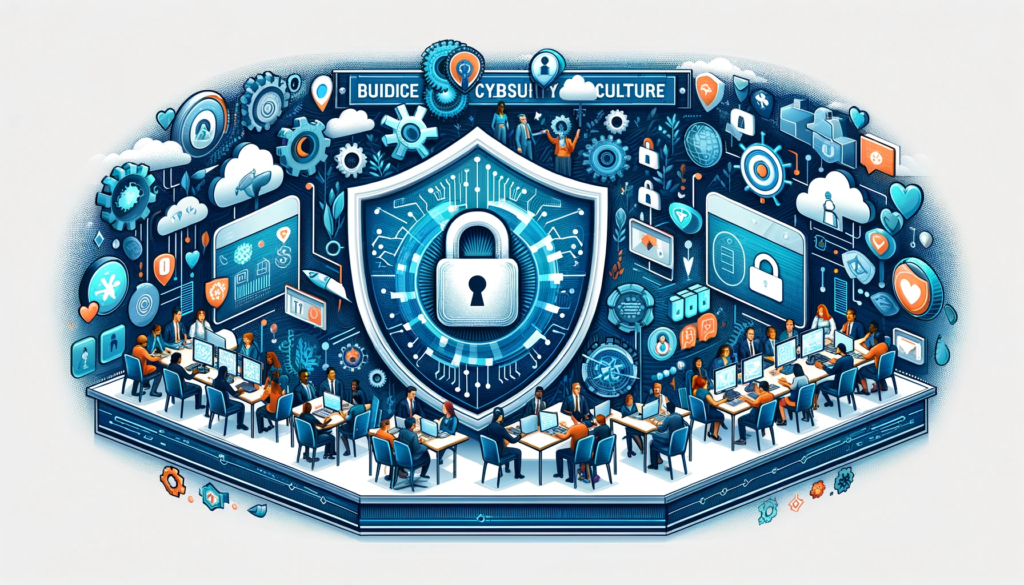
Building a strong cybersecurity culture within an organization is increasingly essential in the digital age. This culture involves shared values, attitudes, and behaviors that help protect assets like people, data, and systems. It’s a proactive approach where security is a business priority and involves everyone in the organization.
Importance of Cybersecurity Culture
- Risk Reduction: A robust cybersecurity culture reduces the risk of cyber threats. Employees who understand the importance of security are less likely to fall for phishing scams, malware, or commit other security mistakes leading to breaches.
- Building Customer Trust: Demonstrating a commitment to security helps in earning customer trust.
- Enhancing Compliance: A good security culture aids in complying with regulations and standards by ensuring employees follow required security controls and procedures.
Challenges in Creating Cybersecurity Culture
- Budget Constraints: Adequate funding is often a major obstacle in developing a cybersecurity culture.
- Executive Buy-in: Without support from the top executive ranks, building a cybersecurity culture can be challenging.
- Internal Conflicts: Sometimes, the security team faces internal challenges, including a lack of respect or understanding within the organization, which can be an impediment.
Best Practices for Building a Cybersecurity Culture
- Leadership Involvement: Begin at the top with leaders adopting and modeling a security mindset.
- Security Assessments: Understand your organization’s current security posture and culture through thorough security assessments.
- Develop a Security Strategy: Formulate a comprehensive security strategy that includes policies and procedures guiding employees in handling sensitive information and reporting security incidents.
- Training and Awareness: Conduct regular security awareness training for employees, contractors, and partners to understand the risks and consequences of security breaches.
- Tailor the Approach: Know your audience and tailor your security message and initiatives according to their specific needs and problems.
- Emphasize Empathy and Relevance: Make cybersecurity personal and relevant to your audience, acting as a close partner to different teams within the organization and aligning the security culture with the broader corporate values.
- Create an Emotional Connection: Overcome the perception of security as boring or irrelevant by creating an emotional connection and making it effective.
Fostering a cybersecurity culture is a continuous process that requires involvement and commitment from all levels of an organization. It involves not just technical measures but also a deep understanding of human behavior and organizational dynamics. By adopting these practices, organizations can enhance their resilience against cyber threats and foster a culture of security awareness and responsibility.